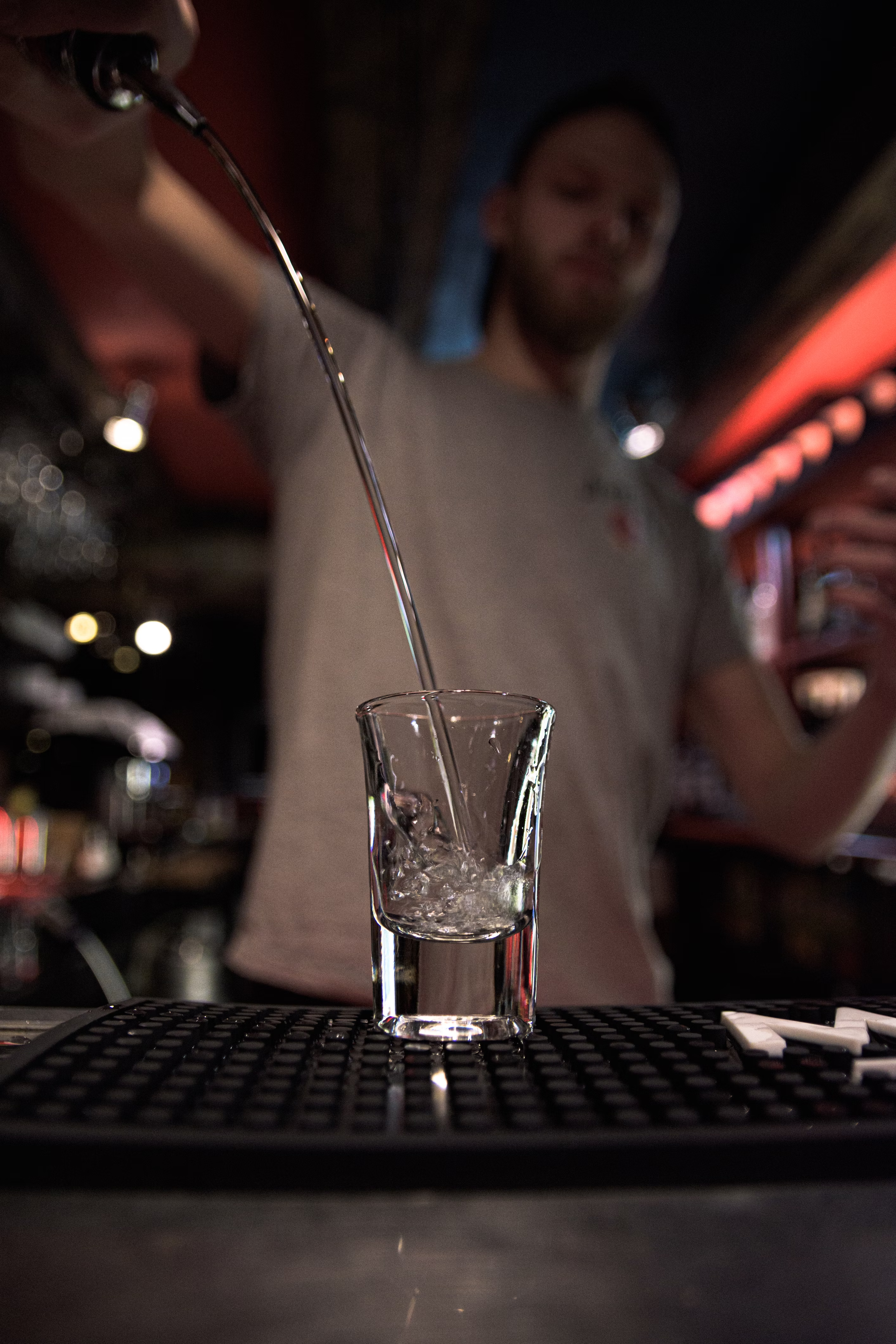Vodka Calories: The Essential Guide
Vodka, a distilled beverage, is known for its versatility in cocktails and wide range of flavors. One aspect that often comes into question is the calorie content of this popular spirit. The number of calories in vodka is directly related to its alcohol content, which is denoted by its proof. Typically, 80 proof vodka, which contains 40% alcohol by volume, harbors around 96 calories per 1.5-ounce serving. Vodka's caloric content increases with the proof; for instance, a 1.5-ounce serving of 100 proof vodka contains approximately 124 calories.

Vodka, a distilled beverage, is known for its versatility in cocktails and wide range of flavors. One aspect that often comes into question is the calorie content of this popular spirit. The number of calories in vodka is directly related to its alcohol content, which is denoted by its proof. Typically, 80 proof vodka, which contains 40% alcohol by volume, harbors around 96 calories per 1.5-ounce serving. Vodka's caloric content increases with the proof; for instance, a 1.5-ounce serving of 100 proof vodka contains approximately 124 calories.
Unlike many other alcoholic beverages, vodka contains no carbohydrates, fats, or proteins, meaning all of its caloric content arises from the alcohol itself. This simplicity makes calories in vodka relatively easy to calculate compared to more complex drinks that contain various sugars and flavorings. It should be noted, however, that when vodka is combined with mixers, the caloric content of the resulting drink can increase substantially depending on the ingredients used.
Caloric Content of Vodka
Vodka's caloric content is directly influenced by its proof and serving size, comparing interestingly with other alcohols and offering a variety of nutritional facts across brands and varieties.
Importance of Proof and Serving Size
The proof of vodka, which is essentially twice the alcohol by volume (ABV), directly affects the calorie count. A standard serving size for vodka is typically 1.5 ounces, commonly known as a shot. For instance, 80-proof vodka usually contains about 96 calories per serving.
Comparison With Other Alcohols
When considering calories in vodka compared to other spirits like whiskey, gin, rum, and wine, vodka generally has fewer calories than these when not mixed with sugary beverages. However, compared to a light beer, vodka might have a similar calorie count depending on the brand and proof.
Nutritional Information
Vodka contains primarily ethanol and water, with little to no sugar, protein, fat, or carbs. Essential for those on a diet, it is a drink with minimal nutrient content, other than its calorie count derived from the alcohol.
- 80-proof vodka: Approximately 96 calories per shot
- 100-proof vodka: Approximately 123 calories per shot
Brands and Varieties
Popular brands like Smirnoff, Absolut, and Grey Goose offer a range of calories based on their different types of vodka. Flavors may carry additional calories, but some brands provide lower-calorie flavored vodka options for calorie-conscious consumers.
Alcohol's Impact on Weight Loss
While vodka calories might be lower than other alcoholic beverages, alcohol consumption can still impact weight loss efforts by reducing the body's ability to burn fat and adding extra calories to the diet.
Mixing Vodka and Calorie Considerations
Mixing vodka with beverages like orange juice or cranberry juice increases the drink's calorie count significantly, as these mixers can be high in sugars. Choosing low-calorie or sugar-free mixers can help manage calorie intake.
Regulatory Information and Guidelines
The USDA and the National Institute on Alcohol Abuse and Alcoholism provide guidelines on alcohol and its related nutrition facts. These institutions stress the importance of understanding daily values and the impact of drinking on achieving a balanced diet.
Health and Dietary Aspects
In assessing vodka's role within a diet, it is important to consider its calorie content, nutritional value, and the potential health risks that come with alcohol consumption. Moderation is key, as well as understanding how it compares to other alcoholic beverage options.
Vodka in Dietary Plans
Vodka contains a relatively low calorie count compared to other alcoholic beverages, which can make it an attractive option for those counting calories. For instance, 80 proof vodka has about 96 calories per 1.5-ounce serving. However, it's crucial for individuals to include these calories within their daily dietary allowances to prevent inadvertent weight gain.
Nutritional Value Beyond Calories
Beyond its caloric content, vodka is essentially devoid of nutrition. It lacks vitamins, minerals, and other nutrients beneficial for a balanced diet. It is, however, gluten-free, which may be pertinent for those with gluten sensitivities or celiac disease. Comparatively, vodka offers no nutritional value like the antioxidants found in red wine.
Moderation and Health Risks
Regular alcohol consumption, including vodka, must be approached with moderation. Overconsumption can lead to health issues such as liver damage and other chronic diseases. The liver metabolizes alcohol, and excessive drinking can strain or damage this vital organ.
Alcoholic Beverage Alternatives
When considering alternatives to vodka in a diet, options such as light beer or champagne typically contain fewer calories, but they also come with other considerations such as sugar content. Vermouth can be a lower-alcohol option but is often higher in calories due to added sugars.
Want more posts like this?Sign up for our FREE newsletter →